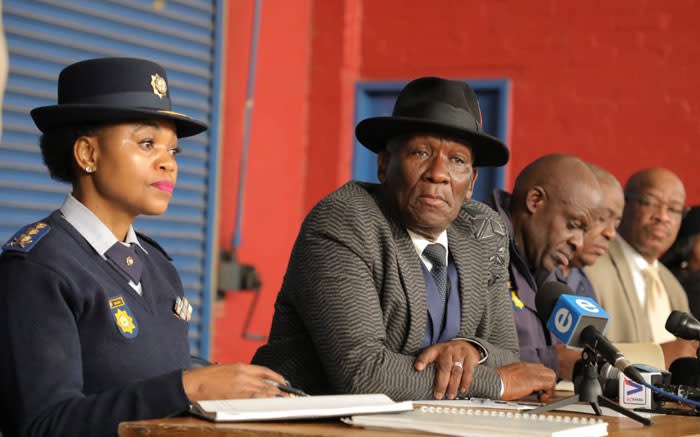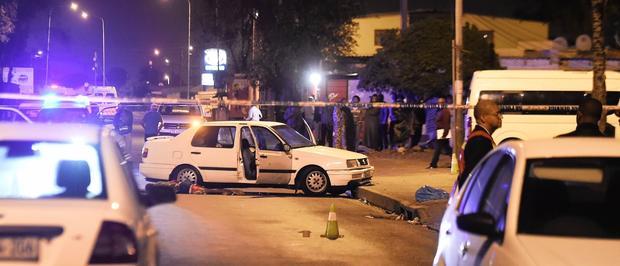Riyaz Patel
South Africa’s murder rate increased by 3.4 percent, which translates into 57 people being murdered daily, statistics released Thursday showed.
The total numbers of murders recorded were 21 022, up from from 20 336 in the 2017/18 financial year. This marks an increase of 686 from the previous year.

Police Minister Bheki Cele conceded that the figures “do not look good,” adding that his ministry would work to halve violent crime within less than the 10-year target set by President Cyril Ramaphosa in his SONA Address.
“We believe that ten years is too long to achieve this,” the minister said.
Cele, National Police Commissioner Khehla Sitole, Statistician General Risenga Maluleke, and Hawks head Dr Godfrey Lebaya were presenting the annual crime statistics to Parliament’s police portfolio committee.
Some 60 percent of murders happened over weekends, which the minister suggested, were fueled by alcohol and drug abuse.

The Inkatha Freedom Party (IFP) spokesperson on police, Zandile Majozi, rejected the notion that the increase in violence and crime can be ascribed to alcohol and drug abuse on weekends in South Africa.
Cele said a very high number of murder victims were killed by people who they knew, which meant that these were not murders that may have been prevented by better policing.
“It will be very difficult for the police to police such cases where people know each other,” Cele said.
SAPS statistics chief Major General Norman Sekhukhune said children were charged in 736 murder cases in the last financial year.
Dealing with instances of child victims of murder, Sekhukhune said “the murder of children that we reported in the current financial year, it’s 1 014. That is 29 cases more than the previous financial year.”
Attempted murder grew 4.1 percent to 18,980, while assault with the intent to do grievous bodily harm was up 2.2 percent to 170 979.
Rape and sexual assault was also on the rise, with 52,420 cases reported marking a 4.6 percent increase compared to the previous year. The figures come amid mounting pressure on Ramaphosa to authorize tougher measures to fight violence against women and children.

Cele said his department had begun implementing the president’s recent directive to reopen unsolved sexual offences cases.
He said police would heed a call to bring back specialised units and needed to work with non-governmental organisations and communities as this had shown to be effective.
Cele rejected calls that “heads should roll” within police ranks in response to the concerning data.
EFF MP Washington Mafanya said: “Over a period of 10 years, we’ve had almost 200,000 murders and it’s a sign that it’s a country at war with itself.”
Freedom Front Plus MP Pieter Groenewald was particularly alarmed at the increase in contact crimes like murder.
“It is quite clear that we have a country, a violent country, which we’ll have to take drastic steps,” he said in reaction to the figures
The South African Police Union (Sapu) urged government to do more to prevent the scourge of attacks on police officers.
The statistics revealed that 70 police officers were murdered in the country, with nine killed in the Western Cape.
Commenting on the latest stats, the Institute for Security Studies (ISS) said the persistent rise of violence in South Africa demonstrates that strengthening the rule of law is crucial but not sufficient for improving public safety.
To address the drivers of violence in South Africa, the ISS recommended “an increased investment in programmes proven to work, including positive parenting programmes, after-school care programmes and anti-bullying programmes at schools.”

Gareth Newham, head of the justice and violence prevention programme at the ISS, said, “most violent behaviour is learnt in the home and in communities. Violence prevention programmes are key to reducing crimes that cannot be policed.”
The ISS reiterated its call for crime statistics to be made available more regularly to the public and civil society.
“The Saps statistics released this week are almost six months out of date and do not reflect the current spate of high-profile violent crimes reported in the media. The data covers crimes committed in the financial year period from 30 April 2018 and 31 March 2019,” sthe ISS said.
